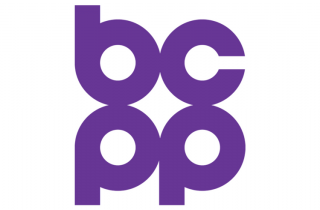Eliminating Toxic Problematic Plastics: California AB 1290
At a Glance
A 2023 California bill, Eliminating Problematic Plastics AB 1290 (Rivas), would remove the worst toxic plastics and plastic additives from packaging sold or distributed in the state.
Bill cosponsors: BCPP, Californians Against Waste, Clean Water Action, and the Natural Resources Defense Council.
Status: Introduced in February 2023 by Assemblymember Luz Rivas (D- Arleta). The bill passed the Assembly Natural Resources Committee 8-3 and the Appropriations Committee. It has now been replaced by the Reducing Toxics in Packaging Act of 2024 (AB 2761 – Hart).
Plastics can cause health harm throughout their lifecycle
Many people encounter toxic, cancer-causing chemicals through plastics, whether they’re aware of the health risks or not. Plastic can harm our health at every stage of its lifecycle – from extraction and production to transport, use, and disposal.
Get the Facts
U.S. Plastics Pact, a collaboration of over 100 corporations, NGOs, and government agencies, identified a list of plastic materials and additives that are “unnecessary and problematic.” These substances are hazardous to health, interfere with recycling, or both. The companies participating in the Plastic Pact committed to taking voluntary action to remove these plastic materials and additives by Jan. 1, 2025. AB 1290 would require these problematic and often toxic materials and additives to be out of all packaging in California by 2026, turning these voluntary pledges into mandatory change.
Toxic, problematic plastics & additives that AB 1290 would eliminate:
PVC (Polyvinyl Chloride) – Type of plastic that is nonrecyclable and extremely toxic at all lifecycle stages. PVC is used in product packaging, such as shrink wrap and clamshell packaging for personal care products and household goods. Unfortunately, at every stage of its lifecycle, PVC exposes workers, communities, consumers, and the planet to highly toxic chemicals, many of which are linked to an increased risk of breast cancer.
Per- and Polyfluoroalkyl Substances (PFAS) – Highly toxic and persistent chemicals; generated, added in, or a contaminant of plastic manufacture. PFAS also exposes people and the environment to toxicity throughout their ‘forever’ life cycle. They are linked to many health problems, including an increased risk of breast cancer.
Pigment Additives (e.g., Carbon Black) – Carbon black, used to color plastic, is a carcinogen when inhaled, putting workers at risk. Additionally, black plastic can’t be identified by optical sorting equipment, so black items are nonrecyclable.
Oxo-Degradable Additives – Make plastic fragments into microplastics, which are impossible to clean up in the environment; both consist of and attach to toxic chemicals; and are absorbed by people and animals. These additives also interfere with recyclability.
PETG (Polyethylene Terephthalate Glycol) – Nonrecyclable.
Opaque or pigmented PET Bottles – Hinders recycling of PET bottles.
Supporting Organizations
BCPP co-sponsored this bill along with our partners Californians Against Waste, Clean Water Action, and the Natural Resources Defense Council.
Types: Article



